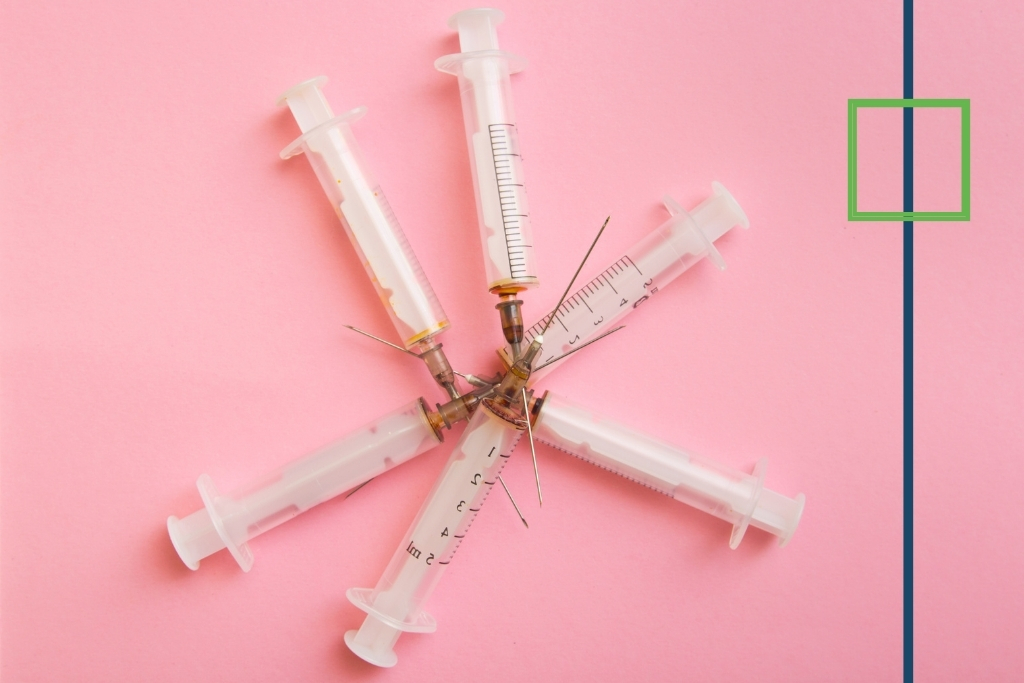What is Vivitrol?
Vivitrol (Naltrexone) blocks the effects of opioid medication, including pain relief or feelings of well-being that can lead to opioid abuse. It can be used to help people maintain abstinence while recovering from an opioid or alcohol dependence. While naltrexone hydrochloride is for both daily and once-a-month dosages, Vivitrol is the once-a-month form of the medication. The US Food and Drugs Administration (FDA) [1] approved this drug for the treatment of opioid and alcohol dependence. However, FDA warns that a person should not be actively drinking at the time of initial Vivitrol administration. Also, a person must not have any opioids in their system when they start taking this drug. Otherwise, they may experience withdrawal symptoms from opioids.
Vivitrol is a prescription injectable medicine used to treat alcohol dependence. It is also used to prevent relapse to opioid dependence, after opioid detoxification. Also, you should stop drinking before starting this drug. If you take opioids or opioid-containing medicine, such as prescription pain medications, you must stop these opioids before starting Vivitrol. To be effective, treatment with this drug must be used with other alcoholism or drug recovery programs such as counseling.

Vivitrol works by blocking the effect that opioids, such as heroin or opioid pain medicines have on the brain. It reduces the cravings that many people experience after they quit. With alcohol, it is not certain how Vivitrol actually works, but it seems to change how the brain responds to alcohol consumption. Is it possible to become addicted to naltrexone? According to the National Institute on Alcohol Abuse and Alcoholism (NIAAA) [2], No. Naltrexone is not habit-forming or a drug of abuse. In addition, it does not cause users to become physically or psychologically dependent.
Side Effects of Vivitrol
Vivitrol Can Cause Serious Side Effects Including:
- Dizziness
- Headache
- Muscle cramps
- Nausea and vomiting
- Painful joints
- Tiredness
- Vomiting
- Toothache
- Trouble sleeping
- Decreased appetite
Other Potentially Serious Side Effects Of Vivitrol Include:
- Severe reactions at the site of injection
- Pneumonia
- Liver damage or hepatitis
- Risk of opioid overdose
- Severe allergic pneumonia
- Serious allergic reactions
- Depression and suicidal thoughts or actions
Liver damage or hepatitis. Naltrexone, the active ingredient in Vivitrol, can cause liver damage (including liver failure) or hepatitis if you take more than the recommended dose. People with acute hepatitis or liver failure should not take this drug.
Effectiveness of Vivitrol
Clinical trials showed that Vivitrol was effective in treating people with alcohol or opioid dependence. This drug helps treat alcohol dependence by decreasing cravings for alcohol. In one clinical, people who used the approved dose of this drug had a 25% greater reduction in heavy drinking days than people who took a placebo (no treatment). Heavy drinking days were defined as days when men had five or more alcoholic drinks or women had four or more alcoholic drinks. This is according to the official website of Vivitrol. [3]
The fact that Vivitrol can be given through a monthly injection makes it an attractive option for anyone who may be likely to miss doses of their medication. This drug can help people who are working on managing their addiction to alcohol or opioids because it reduces cravings. It also does not cause feelings of euphoria, so there is no associated intoxication or abuse liability.
For the treatment of opioid dependence, researchers found that 36% of people who took this drug didn’t use any opioids throughout the 24-week study. In comparison, only 23% of people who took a placebo didn’t use any opioids for this time frame. This is according to the drug official website [4]. It requires individuals to have detoxed prior to starting treatment using this drug. Individuals must completely detox from opioids for 7 to 10 days before starting Vivitrol. Otherwise, the medication could elicit serious withdrawal symptoms.

Vivitrol Overdose
After receiving Vivitrol, your body will be more sensitive to opioids if you use the opioid medication in the future. Using the same amount you used before could lead to overdose or death. After opioid detoxification, individuals are likely to have reduced tolerance to opioids. Although the drug blocks the effects of opioids for 28 days after use, cases of opioid overdose with fatal outcomes have been reported in individuals who used opioids at the end of a dosing interval or when missing a dose.
Individuals should be aware that they may be more sensitive to lower doses of opioids after Vivitrol treatment is discontinued. Reduced tolerance is especially of concern at the end of a dosing interval. That is, near the end of the month after this drug was administered, or after a dose of Vivitrol is missed. This data is from FDA [5].
Depression, Suicidal Actions and Vivitrol
According to Vivitrol’s official website [6]. This drug can cause serious side effects, such as a depressed mood. Sometimes this leads to suicide, or suicidal thoughts, and suicidal behavior. Moreover, mood changes can occur with Vivitrol. Alcohol- and opioid-dependent patients, including those taking Vivitrol, should be monitored for the development of depression or suicidal thinking. In addition, families and caregivers of patients being treated with Vivitrol should be alerted to the need to monitor individuals for the emergence of symptoms of depression or suicidality.
Symptoms Of A Depressed Mood Or Suicidal Thoughts Can Include:
- Feeling hopeless
- Feeling sad or crying a lot
- Not feeling interested in doing things you usually enjoy
- Sleeping a lot more or a lot less than usual
- Feeling more angry or aggressive than usual
- Having thoughts of hurting yourself
Alcohol Dependence
In clinical trials for the treatment of alcohol dependence, about 10% of people who took this drug had a depressed mood. In comparison, 5% of people who took a placebo (no treatment) also had a depressed mood. Suicide or thoughts of suicide affected 1% of people who took Vivitrol and didn’t occur at all in people who took a placebo. This is based on the study from the National Institute of Health (NIH) [7].
Opioid Dependence
In aIn a 24-week clinical trial for the treatment of opioid dependence, no one reported a depressed mood or suicidal thinking. This includes people who took Vivitrol or a placebo. This is according to NIH [8].
The original development of substance use disorder can come about as a response to mental health issues. Hence, without proper diagnosis, many people seek to control their mental health disorders by self-medicating. Using alcohol or tranquilizers for anxiety, amphetamines or cocaine for depression, etc.—and the short-term relief or distraction makes the experiment look like a success.
Co-occurring Diagnosis Treatment
Treating dual diagnosis clients is a critical aspect of inpatient treatment experience because co-occurring disorders are strongly correlated with instances of substance abuse. Creating a treatment plan that addresses the psychological connection with drug use, and addressing underlying mental health disorders is all a part of setting clients up for success.
A thorough mental health analysis can help identify suitability for primary mental health treatment with secondary substance abuse disorder. Professionally trained mental health counselors and medical care providers can offer behavioral therapy and medication-assisted treatment. Proper treatment can lead to change for the better along with healthier living. This is all possible through co-occurring dual diagnosis treatment.
Repetition can then lead to dependency and substance abuse can worsen the mental illness. Thus, mental illness can impede long-term sobriety. This cyclical effect of dual diagnosis makes it difficult to treat without the proper support. Alternatively, a person relatively free from mental health problems can experience depression and suicidal thinking and action. For example, drugs like Vivitrol are FDA-approved and highly effective for alcohol and opioid abuse treatment. However, as its potential side effect, it may cause events of suicidal nature when administered to adults with alcohol dependence. Untreated, these can, in turn, intensify the ongoing alcohol abuse.
For a free co-occurring primary mental health treatment assessment please call 24/7. Your assessment can help diagnosis suitable treatment options for your personal situation.
Source:
[1] [5] FDA – https://www.accessdata.fda.gov/drugsatfda_docs/label/2010/021897s015lbl.pdf
[2] NIAAA – https://pubs.niaaa.nih.gov/publications/combine/faqs.htm
[3][4][6] Vivitrol – https://www.vivitrol.com/opioid-dependence/what-is-vivitrol
[7] [8]NIH – https://dailymed.nlm.nih.gov/dailymed/drugInfo.cfm?setid=cd11c435-b0f0-4bb9-ae78-60f101f3703f
[9] WeLevelUp.com – Vivitrol Effects » Drug Alcohol Addiction Rehab (welevelup.com)